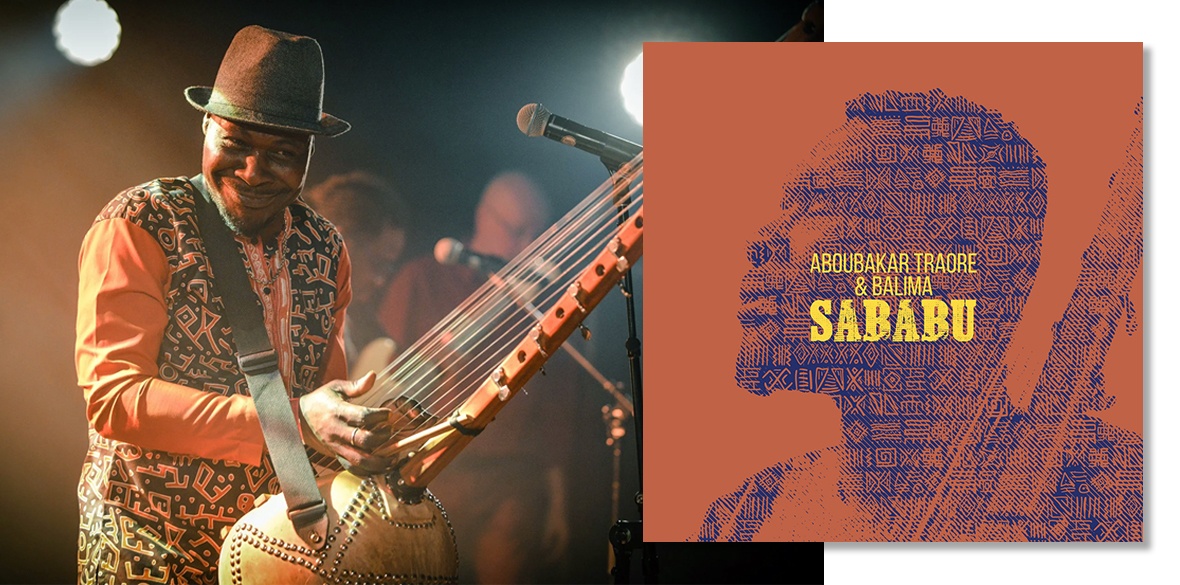This is the last article you can read this month
You can read more article this month
You can read more articles this month
Sorry your limit is up for this month
Reset on:
Please help support the Morning Star by subscribing here
THE second album from Burkina Faso born Aboubakar Traore and his band Balima, Sababu (Zephyrus Records), continues to expand the boundaries of West African music, marrying Traore’s Burkinabe heritage with a blend of pan-African rhythms, soulful jazz and a dash of reggae.
Traore learned the intricacies of the kamele ngoni (the young man’s harp) and here he takes a political stance on the inequities faced in Africa, particularly its exploitation by the global north. Traore stresses the importance for African countries to regain their autonomy and power to prevent young people undertaking dangerous migration routes to the west.
The album contains a celebration of pride in Africa with music that transcends borders while remaining deeply rooted in Burkina Faso.
Traore lets the strings of his instrument do their stuff on an album based on the sounds of the streets of Bobo-Dioulasso in Burkina Faso.

Etran De L'Air — 100% Sahara Guitar (Sahel Sounds) is the fourth release from the family band all born and raised in Abalane, Agadez, Niger, on the southern outskirts of the Sahara desert.
“We only had one acoustic guitar,” says band leader Moussa Ibra when he formed the band in 1995. “For percussion, we hit a calabash with a sandal.”
Over the decades, the band was pieced together: “It was difficult. We would walk to gigs, lugging all our equipment, carrying a small PA and guitars on our backs, 25 kilometres into the bush, to play for free — there’s nowhere in Agadez we haven’t played.”
Whereas some Tuareg guitar bands are influenced by Western rock, Etran de L’Air (sometimes described as a wedding band) play in a pan-African style with influences, from Northern Malian blues, Hausa bar bands, to Congolese soukous. “We play for the Tuareg, the Toubou, the Zarma, the Hausa.”
If you are fan of desert blues by the likes of Tinariwen you need to check this out.

The Afro-Latin band The Bongo Hop’s new album La Pata Coja, (Underdog) sees them join forces with Haitian voodoo sensation Moonlight Benjamin and other guests from the South American music scene including Paris-based singer Kephny Eliacin; Brazilian producer and singer Lucas Santana and Afro-Columbian singer Nidia Gongora. Bandleader Etiemme Sever lived in Columbia for several years and is steeped in Afro-Columbian and Latin dance music.
The name The Bongo Hop comes from a left-wing comic book read by Etienne as a kid, which was based around the story of an African sailor and his journey through South America in the post colonial years!

Staying in Latin America Analog Africa’s Super Disco Pirata — DeTepito Para El Mundo 1965-1980 features the little known sonidero (1980s mobile sound systems) subculture of Mexico City’s barrios with floor-fillers and street dance songs from Colombia, Peru, Ecuador and Mexico.
Sourced from pirata (bootleg) album/cassettes released by the mysterious Rolas, Pancho, La Changa, Arco-Iris and Casablanca and tracked down by crate digger and label boss Samy Ben Redjeb. “I first became aware of pirata albums in 2020 while hunting for records in Mexico City. Their DIY covers — and the edited, tweaked, EQ-manipulated and pitched-down music they contained — got me hooked.”
Twenty-three tracks of obscure latin street music from records you will never find anywhere else.











